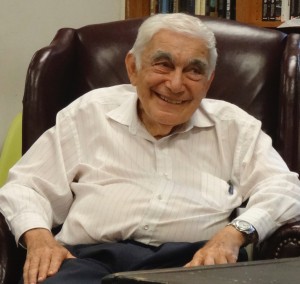 David Cohen, a storied activist and leader on campaigns for social and economic justice, passed away at the end of last year.
David Cohen, a storied activist and leader on campaigns for social and economic justice, passed away at the end of last year.
Between 2005 and 2007, David and I worked together at Experience Corps in Washington, DC. We shared an office for a brief time. At one point, I recall showing him the keyboard shortcuts for cut and paste (ctrl-X and ctrl-V). It was to him an innovation worthy of the highest praise, and I briefly had a chance to bask in his famous graciousness, which felt wonderful.
The thing I remember most about David was his patience, and the care with which he listened to everyone around him. That trait was something he actively cultivated as part of his advocacy identity:
Believing he could be more effective outside government, Mr. Cohen defined an effective lobbyist as someone who “listens all the time, for signals, for code words, for clues,” adding, “Even within the framework of something you are advocating, there is room for difference and room for finding different ways to get to the same place.”
My favorite passage from an interview he gave in 2013 speaks to this critical skill as well. David was critiquing the ubiquitous political book What’s the Matter with Kansas? The book rankled him because of the extent to which he believed its author, Thomas Frank, failed to listen to the voters of Kansas as he characterized them in a way David considered callous and unfair.
[T]his is very different than What’s the Matter With Kansas?, which I thought was a very snobbish book. It was disrespectful of people who are able to often separate out their own self-interests, but they often don’t operate by bread alone, they’re not often operating by economic interests. And I think Frank did not listen to those people, was not respectful of people who were saying something different. I think the [question] is not what’s the matter with Kansas, but how do you engage in the kind of critical thinking and the kind of popular education that helps bring people to making informed and understood choices and decisions. Kansas is a schizophrenic state, politically. On the one hand they can elect a [Democrat] Kathleen Sebelius, and yet there are various extremists in the Legislature, and on the [state] school board. They can elect a Bob Dole, who was champion of civil rights. There was a whole legacy in Kansas of what I would call pro-civil rights Republicans. Thomas Frank’s listening gear didn’t allow him to hear what the people of Kansas were really saying.
I wonder about that last phrase — Frank’s “listening gear.” I wonder if perhaps it’s a transcription error, that it was meant to be “listening ear.” On the other hand, I also kind of love it as it is.
I’ll always remember David as having the best-tuned listening gear of anyone I’ve ever met.